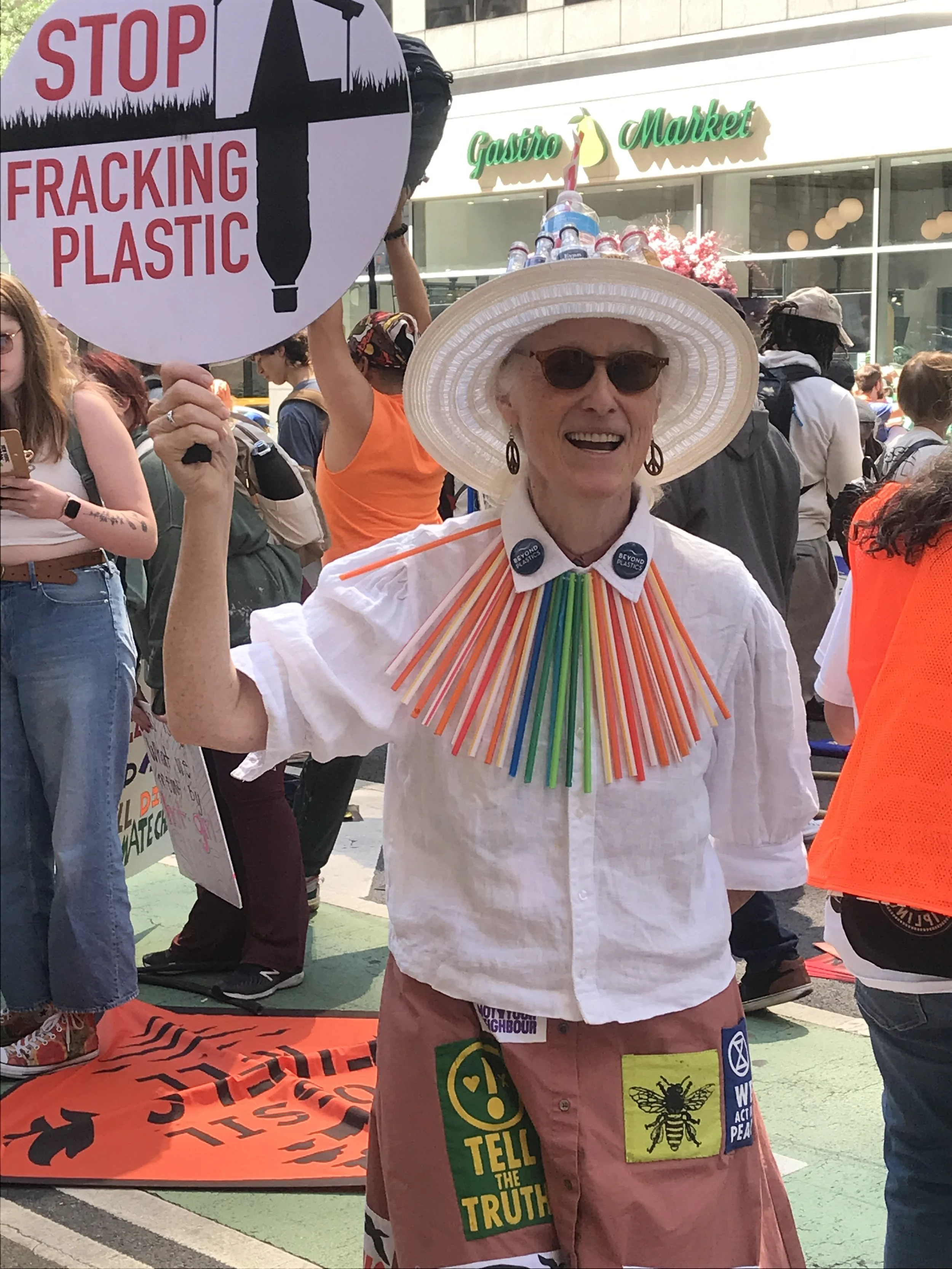🛢️Marching to End to Fossil Fuels in NYC🚶🏿🚶♀️
On September 17, 75,000 people gathered in midtown Manhattan to demand an end to fossil fuels. Among the marchers was the Beyond Plastics Hub — 200+ dedicated Beyond Plastics’ volunteers, supporters, and staff members sporting red, white and black and carrying colorful, eye-catching signs.
The March to End Fossil Fuels was the largest climate march since the beginning of the pandemic and a powerful way to kick off Climate Week NYC. Just days after the march, UN Secretary General António Guterres urged global leaders to plan for meaningful reductions to fossil fuels at the UN Climate Ambition Summit.
Eileen Ryan, founder of Beyond Plastics Greater Boston and Jane Selden, leader of our affiliate, 350NYC’s WasteNot project, led the creation of the Beyond Plastics Hub. Not only was it crucial for Beyond Plastics supporters to join in pressuring President Biden to reverse his support for new fossil fuel projects, “It was also a great opportunity for our group to highlight the significant role plastics production plays in contributing to the climate crisis,” stressed Jane.
The petrochemical industry is rapidly expanding the infrastructure for plastic production, driving up greenhouse gas emissions. The U.S. plastics industry currently emits at least 232 million tons of greenhouse gas emissions each year. By 2025, new plastic facilities are on track to release the climate change emissions equivalent of 27 new coal-fired power plants, moving us backward in the fight against climate change and disproportionately burdening low-income communities and communities of color with toxic pollution. Just eighteen environmental justice communities, located primarily in coastal Texas and Louisiana, bear the burden of 90% of the climate pollution from plastics. Learn more about the connection between plastics and climate change in our report, The New Coal: Plastics and Climate Change.
Signs bearing the phrase, “Plastic Kills”, created by Beyond Plastics Greater Boston member and artist Leslie Evans, were held high by activists and Eileen’s hat made with discarded plastic liquor “nip” bottles made a splash on the front page of the New York Times.
Reflecting on the march, Eileen recounts: “At one point I looked around and noticed that the Beyond Plastics group was dispersed throughout the crowd. When I mentioned this to someone walking beside me, she replied "We may be dispersed, but we are all together.”
The March signaled vast public support for moving away from fossil fuels and plastics, echoing recent polling which found that two-thirds of American voters on both sides of the aisle are concerned about the impacts of plastic pollution with a majority of voters holding industry and government responsible for implementing solutions. As we strive to put an end to the use of fossil fuels in our daily lives, we must move together and take collective actions for policy change at all levels of government.




